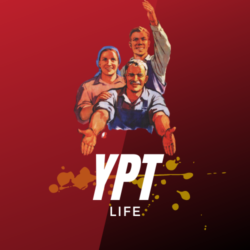We all know how the Soviet Union ended. On Christmas in 1991, the Soviet flag was lowered for the final time and the flag of the Russian Federation was raised in its place. The old Soviet political structure was dismantled and the Communist Party of the Soviet Union was ultimately outlawed. …And then in 1992, a new supreme authority of the USSR was formed. What?
You see, the collapse of the USSR wasn’t exactly universally popular. Many, especially in Russia, remained committed to the cause of socialism and owing to their previous power, it wasn’t that ridiculous to imagine in 1992 that the rise of capitalism could be reversed and the power of the Soviets returned. The hopes and aspirations of these people led to some very fascinating oddities in the 90s and 2000s, with an especially notable case being the Umalatova awards. But first… Let’s give some background.
Who/What is Umalatova?
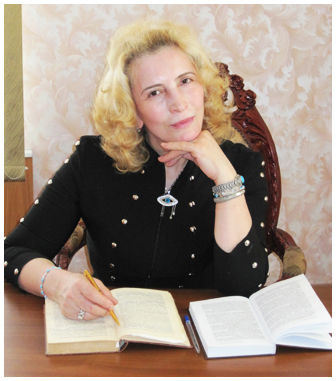
Sazhi Umalatova was born in 1953 in the Kazakh Soviet Socialist Republic. An ethnic Chechnyan whose family was deported under Stalin, she nonetheless held and continues to hold a hardline pro-Soviet and even pro-Stalin slant. In 1984, she was elected a deputy of the Supreme Soviet of the USSR and in 1989, was elected one of the 2250 People’s Deputies of the USSR. She especially made a name for herself by openly advocated for Gorbachev’s resignation in December of 1990, the only deputy to openly oppose his policies at this time. It was this action especially that gave her the respect among those hoping for a continuation of the USSR.
In August 1991, the Congress of People’s Deputies dissolved itself in response to an attempted coup, soon followed by the dissolution of the union itself by the end of the year. The Communist Party of the Soviet Union was banned and all these government figures suddenly found themselves civilians in a brand new economic and political system. Years, decades of work undone and an almost immediate massive economic crisis. Even many of those who had supported the dissolution of the Congress of People’s Deputies came to regret it, though many more still simply attempted to move on. For Umalatova and her followers… That just wasn’t acceptable. So what to do next?
The USSR Lives On!
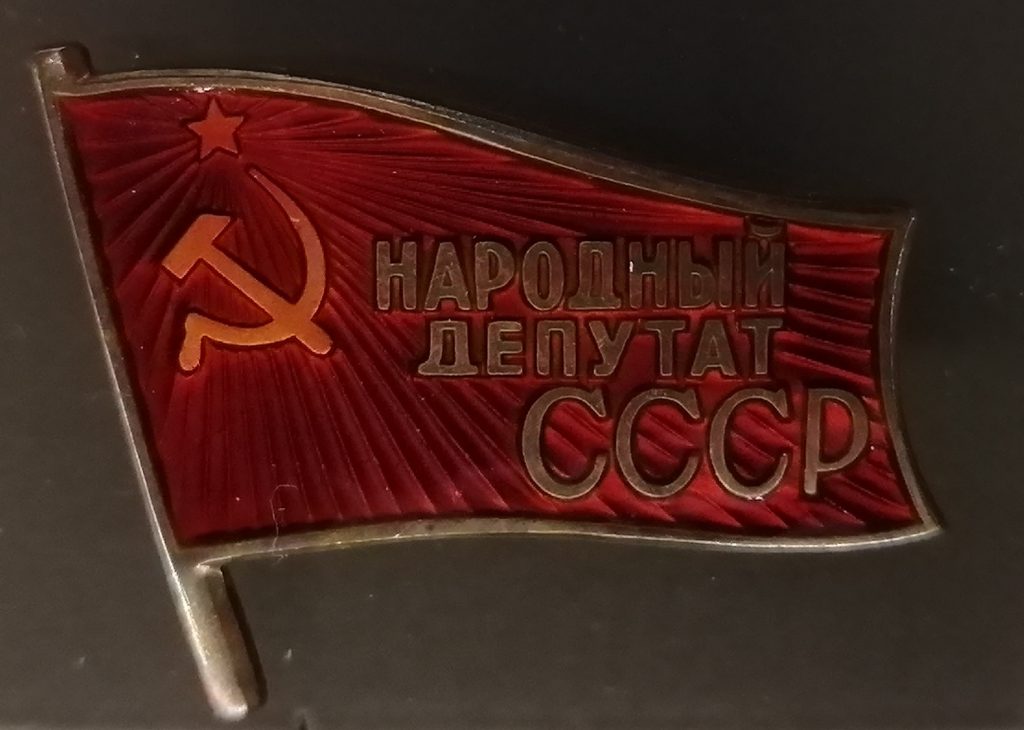
Okay, okay, maybe a little hyperbolic. But in a sense, it did! How? Well just because the Congress of People’s Deputies was gone, that didn’t mean all its members were gone! Shortly before the USSR’s dissolution, on December 10th 1991, a petition was organized demanding the convening of an emergency meeting of People’s Deputies. 397 former deputies signed off and it was delivered to Gorbachev on the 21st, where it was almost immediately made irrelevant by the USSR’s dissolution. Still, one could easily argue that this created a mandate of sorts for this meeting! They backed up their claim for this mandate by declaring/claiming that the attempt to dissolve the People’s Deputies was in fact illegal.
Immediately after the new year in 1992, a meeting was held in the offices of the new communist party Labor Russia. Among those present was none other than Umalatova. At the suggestion of Labor Russia, it was decided that an emergency meeting of the People’s Deputies was to be called. Firstly, the organization itself had to be reformed and after much deliberation, Umalatova was first to sign and the document and become chairwoman of the organizing committee for the extraordinary congress. So with that done, it was decided the congress would be held on March 17th.
An oft forgotten rally was held in Moscow that very day, attracting up to 100,000 demonstrators in support of the congress, possibly the most united the pro-Soviet movement ever was since the collapse of the USSR. The congress was held on the Voronovo state farm, attracting around 200 of the original 2250 People’s Deputies. Which… Was impressive, sort-of. But hardly represented the original government and ultimately didn’t inspire enough confidence to form a true opposition government.
All the same, the congress resulted in the formation of the Permanent Presidium of the Congress of People’s Deputies of the USSR, essentially a planned continuation of Soviet authority. Umalatova was elected chairwoman once more and… That’s about as far as the new ‘government’ really got. From then on, the congress reportedly met very irregularly and never again with its full membership. The failure to have any immediate wide-scale success likely demoralized many, who simply drifted off to other communist parties or grew to accept the end of the USSR.
The Umalatova Awards
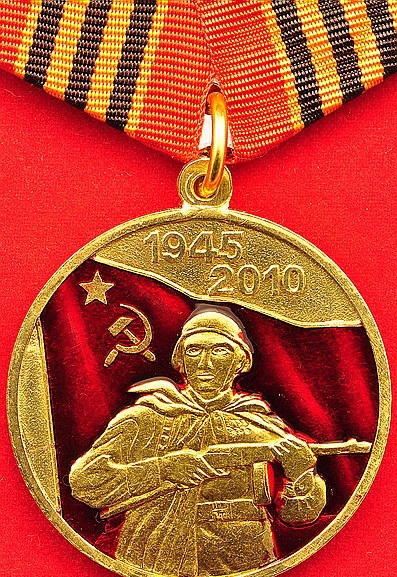
Anyway, that’s not what you’re here for, as deeply fascinating as it all may be. You wanna know about the awards! You see, a funny thing about the collapse of a country is that a lot of things slip through the cracks for a few years while you’re rebuilding a new one. Yeltsin and his ilk were hardly going to delay the destruction of the USSR for a few more weeks while someone designed new medals and awards for the Russian Federation, so there was a period when there were no awards to give! And when a few new awards were developed, they were openly available to be bought and sold. The new Permanent Presidium could take advantage of this.
Having access to stockpiles of unissued awards and having the ability to create new ones due to a number of wealthy backers, the body began issuing brand new awards in 1994. That very same year, they developed their first unique, brand new award, the ‘Defender of the Soviets’ award to commemorate those who fought to defend the last remnants of the Soviet system in the 1993 ‘constitutional crisis’. Unlike the Russian federation awards, these so-called Umalatova awards could not be bought and sold and were given only to those who directly defended the Russian ‘white house’ against Yeltsin’s army. With this precedent set, the awards became increasingly recognized.
The Umalatova awards were given out not just in Russia, but to other ‘Commonwealth of Independent States’ members who comprised the former USSR, as well as to international organizations and socialist-aligned countries. Quite relevant for us here at YPT, even Kim Jong-Il was given an award! On December 11th 1997, Kim Jong-Il was awarded the Order of the October Revolution, as reported by the Korean KCNA. While their authority as the legitimate government of Russia wasn’t recognized, these Umalatova awards became highly prolific, circulating in the tens of thousands, especially as regular jubilee anniversary medals were awarded to many in the army.
Many socialists and those who felt the new Russian government was treasonous for collapsing the Union openly rejected official awards and proudly wore these new, unofficial Umalatova awards, even though they lacked the perks that often came with official ones. Many war veterans who never got awards during the USSR’s existence would campaign to get them now, something that caused quite a bit of controversy down the line. Interestingly, there were also moves to posthumously give awards to those who were stripped of them during the Stalin era after facing persecution. Ironic considering the Permanent Presidium actually began issuing the Order of Stalin in 1998, an award that was phased out during Soviet de-Stalinization under Khrushchev.
Umalatova Awards Controversy
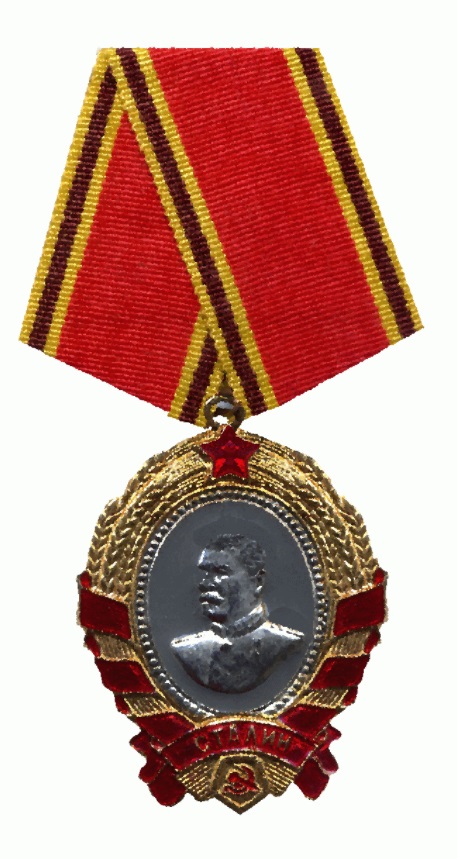
Despite how prolific and widespread the awards became, it wasn’t without controversy. Naturally, how could it not spark controversy? The first big controversy is just the question of what right they had to issue awards in the first place? Due to a legal quirk, the authority of the Congress of People’s Deputies to issue awards was never removed in the first place, only expiring in 1999, at which point it became entirely possible to issue them privately and unofficially. Supposedly the Yeltsin government essentially didn’t notice for all those years that one tiny organ of Soviet power persisted almost into the new millennium.
This gave them the legal authority, but you had a strong argument to claim that was bullshit. It was a mistake, the Umalatova awards were being issued by a non-government without mandate. For as many veterans and socialists who embraced the continuation of the awards, there were others who were furious that people who would never be awarded by a legitimate state now found themselves regarded as ‘Hero of the Soviet Union’. It wasn’t until 2007 that a legal challenge was launched by Valentin Varennikov who was ultimately counter-sued by Umalatova and lost. Turns out there’s no problem because the Umalatova awards weren’t for Russians, they were for the Soviet Union! A country that didn’t exist, so carried no legal significance.
Another pretty big controversy is that it wasn’t always apparent whether the awards were real or not. Obviously it didn’t matter if they decided to appoint you the rank of General when it’s for an army that no longer exists, but it very much matters for veterans and the perks they get. There have been quite a few incidents of people found taking advantage of healthcare only available to high-ranking veterans when they had no right whatsoever. All the same, because the Permanent Presidium wasn’t awarding the perks, only the awards, they weren’t on a legal hook for what some frauds chose to do with the Umalatova awards.
Many also simply noted the clear political calculations of the awards being given. The award for the defenders of the 1993 Soviet parliament was clearly instituted in response to the Russian Federation award for ‘Defenders of Free Russia’, while awards depicting Stalin were brought in amidst Russian attempts to demonize Stalin even more harshly than Khrushchev had. Some came to believe that the awards weren’t being given as true recognition achievement, but rather to stoke feelings of Soviet nostalgia.
The biggest controversy of all was the claim that you could buy awards or receive them in exchange for favours. None of this has been proven, but claims have been out there for a while. One report claims that Umalatova awards signed by the woman herself were being sold for 50 rubles by the Communist Party of the Russian Federation, though again, the veracity of this claim is disputed. When asked in 2012, Umalatova stated she found the act of selling the awards disgraceful but acknowledged that it was done, though claimed it had nothing to do with her. She claimed that for this reason, military awards are no longer issued, which may be why there’s little evidence of ones issued after 2010.
What About Now?
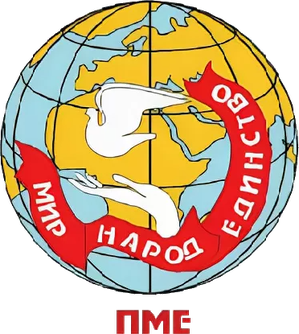
Everything we’ve talked about so far runs from the 90s up to a statement in 2012. The most recent new awards issued were in 2010. The question remains, what’s the status of Umalatova awards now? Short answer, I really don’t know. Information even in Russian is hard to come by, made no easier by the fact that I don’t speak Russian and have to rely on wonky translations and the kind assistance of more multi-lingual friends. But I do have some more information.
The Permanent Presidium itself reportedly nominally still exists, with Umalatova making a post on their activities as late as 2013 on her personal Livejournal. That said, I’d be inclined to believe that nobody is actively involved in it anymore and it’s merely a status symbol for her and perhaps a few others. As early as December 1996, it seemed Umalatova and other former deputies had moved to greener pastures with the formation of the Party of Peace and Unity. Notably, the party doesn’t claim to be a direct successor of the USSR and suggests a break from that claim, something very much furthered upon the rise to power of Vladimir Putin, who Umalatova has openly praised many times and campaigned for.
While still taking a socialist stance in certain regards, the USSR is decisively dead and gone. Statements on the party website suggest a move towards Russian nationalism and protectionism, strict support of the Russian Orthodox church and even some flirtations with Eurasianism, oddly enough. While the original dream of a return to Soviet power may be over, the Umalatova awards have a much longer legacy. Perhaps they’re little more than a historical curio, but what a strange and fascinating curio they are.
